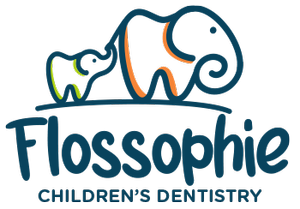
Are you worried about whether milk can harm your teeth? Let’s explore the reality behind this topic in simple terms to help you grasp how milk impacts dental health.
Milk has always been praised as a healthy drink, especially for kids’ growth. But many believe it might cause tooth decay, especially in children with baby teeth.
Does Milk Lead to Tooth Decay?
Drinking milk usually doesn’t harm your teeth. Milk has good stuff like calcium, which makes teeth and bones strong. But if you have milk with added sugars or flavors too often, it can be bad for your teeth. This is because sugary milk can create plaque on your teeth, leading to decay if not cleaned well. So, it’s vital to brush and floss regularly and limit sugary foods and drinks for healthy teeth.
Can Breast Milk Cause Tooth Decay?
Breast milk is usually safe and healthy for babies. But if babies fall asleep while feeding and keep milk on their teeth, it might cause decay, especially if they keep breastfeeding after getting their first teeth. It’s crucial to clean your baby’s gums and teeth after feeding and avoid letting them sleep with milk in their mouth to prevent tooth decay.
Gentle Dental Care for Kids – Book an Appointment
Is Milk a Treatment for Tooth Decay?
No, milk is not a treatment for tooth decay.
Signs of Tooth Decay in Milk Teeth
If your child has holes or pits in their teeth, toothaches, sensitivity to hot, cold, or sweet foods, or dark spots on their teeth, they might have tooth decay in their baby teeth. It’s essential to visit a pediatric dentist in Duluth if you notice these signs. Early treatment can stop decay from getting worse and keep your child’s teeth healthy.
Can Milk Cause Tooth Decay in Adults?
Drinking plain milk usually doesn’t cause tooth decay in adults. But flavored or sweetened milk-based drinks can lead to decay. These drinks can create plaque on your teeth, causing decay if not cleaned well. To maintain healthy teeth, it’s essential to brush and floss regularly, reduce sugary foods and drinks, and visit your dentist often.
Impact of Oat Milk, Almond Milk, Chocolate Milk, and Milk at Bedtime on Tooth Decay
Oat milk, almond milk, and chocolate milk may lead to tooth issues if they contain added sugars. Drinking milk before bedtime can also be harmful because the sugar stays on your teeth all night. But unsweetened varieties like unsweetened almond milk or oat milk are less likely to cause problems. Remember to check for sugar in flavored milk and brush your teeth before bed to keep them healthy.
Recognizing Signs of Tooth Decay in Milk Teeth
Visible cavities, tooth discoloration, sensitivity, pain while chewing, and swollen or bleeding gums are common indicators of tooth decay in milk teeth.
Protecting Milk Teeth from Decay
In addition to treatment, preventive measures like dental sealants can safeguard milk teeth from decay. Dental sealants are thin coatings applied to the chewing surfaces of the back teeth to seal off pits and fissures where bacteria and food particles accumulate.
